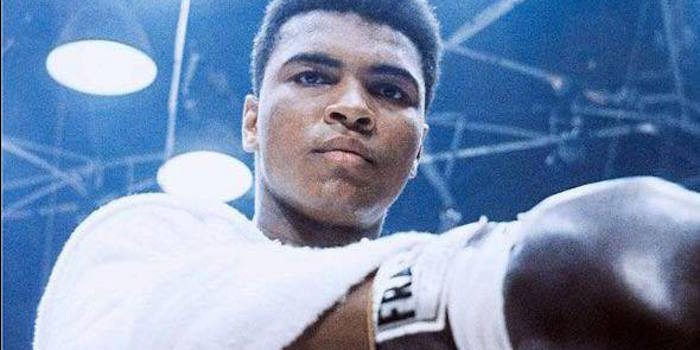Injection of methyl phenyl tetrahydropyrinide (MPTP), an amphetamine, causes ‘rapid onset of Parkinsonism’ according to the drug’s toxicity report. In 1976 Barry Kidston, a chemistry graduate from Maryland, injected himself with MPTP and within three days began displaying symptoms of Parkinson’s disease.

Muhammad Ali was examined by the Mayo Clinic in 1981 and the world was told he had mild dementia pugilistica – a condition common among boxers. And as the years went by, the world accepted the idea that his boxing career bought on his Parkinson’s disease.
Because it made sense, right? Well actually, no. There are no other cases of dementia pugilistica developing into Parkinson’s disease. It just doesn’t happen. Plenty of boxers have taken much worse, more regular blows than Ali throughout their careers and none of them have developed Parkinson’s disease via dementia.
If reports are correct and Ali was injected with MPTP at the Mayo Clinic, then the government may have pulled off the perfect crime – nobody raised an eyebrow or asked any questions. The world simply accepted that Ali’s transition from dangerous radical to cuddly icon was due to a disease caused by his boxing career.
But Muhammad Ali’s own neurologist, Dr Abraham Lieberman, has dismissed that explanation, saying it wasn’t taking blows to the head that caused the disease. Neither was it genetic. Lieberman says it is ‘impossible’ to know what the cause was.
“People ask me about this and I tell them: look at George Foreman. He boxed longer than Muhammad did, took many more blows to the head and he’s on television selling his cookware.”
Former fighter Freddie Roach, now Manny Pacquiao’s trainer, acquired Parkinson’s in 1990, but it manifests differently – he never shakes and can converse almost normally. It is said that Roach is able to control the disease through medication, injections, and actively training other fighters. His doctors say that his excellent hand eye coordination has slowed down the debilitation of the disease.
But if this is the case then surely Ali’s extraordinary hand eye coordination would have prevented his condition from being so incapacitating that it quickly destroyed his ability to speak articulately – arguably his greatest gift of all. And if Freddie Roach can control his condition with medication and training, then surely Ali could have done the same.
The differences in their conditions can be explained. Freddie Roach doesn’t pose a threat to the government. Muhammad Ali did.
Silenced
It is easy to forget what a dangerous outsider Muhammad Ali was before having his voice silenced. The most famous draft resister in history, he mixed with Martin Luther King and Malcolm X. The Nixon and Johnson administrations bugged his phone.
Most people express their faith and beliefs but risk very little, but Muhammad Ali risked everything – his career, his family, and his finances. He was an enemy of the establishment, and he was willing to fight for his beliefs. He had his professional boxing license revoked in the prime of his career for his refusal to fight in the Vietnam war. He was sentenced to five years in jail.
But they couldn’t break him. The Louisville Lip, as he was dubbed early in his career, just became stronger and more influential.
As far as the establishment was concerned, Ali was blessed with the most dangerous quality of all – charisma. He had the uncanny ability to make you like and admire him even if you were didn’t agree with what he stood for. Even the KKK were susceptible to his charms.
No athlete, politician, or preacher ever had a voice quite like his or used it as effectively as he did. If he was that effective while dedicating his mind, body and soul to life inside the ring, imagine how successful he could have been after retirement when he planned to use his mind, body and soul to make changes outside the ring.
Muhammad Ali and Malcolm X
Martin Luther King was assassinated. Malcolm X was assassinated. Muhammad Ali, too big a name to be taken out in a messy assassination, was silenced.
It wasn’t his plan to end up as a loveable, cuddly establishment icon. He didn’t want to be revered as a sanctified sports star. Muhammad Ali was a powerful, dangerous political figure. He may have died in 2016, but the world lost him when his voice and strength were taken away in the late 70s.













